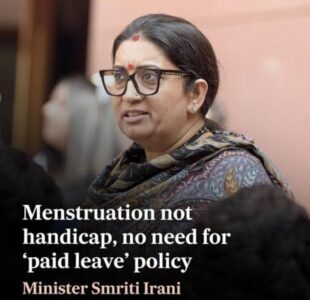Mismatched 2 gives life lessons to Gen Z – career to mental health.
Mismatched 2 gives life lessons to Gen Z – career to mental health.
Strange how we need a webseries to acknowledge mental health issues whereas we suffer and see it so commonly around us.Mental health issues aren’t always given much importance, even if they’re shown, they come up as a mocking factor in the storyline of most Bollywood content.
Season 2 of Netflix series Mismatched, starring Rohit Saraf and Prajakta Koli, is a high-octane drama that steers the conversation around the mental health of students and young professionals. What makes this coming-of-age romance drama stand out is its empathetic handling of the challenges and concerns of Gen Z as they navigate through career and love life.
Mental health issues under the spotlight
Mismatched Season 2 has addressed issues like body dysmorphia, anger management, panic attacks and coming to terms with one’s sexuality. Complications arising from heartbreak, peer pressure and concerns about one’s future contribute to the problems of students at Aravalli Institute.
A lot of screen time is devoted to Anmol (Taaruk Raina), who struggles with his disability and anger issues. Celina (Muskkaan Jaferi), on the other hand, is not ready to accept her sexuality.
Simran’s (Kritika Bharadwaj) struggles with body image issues reflects the dark side of the world of Instagram influencers who would go to any lengths to maintain their social media image. When Simran says, ‘I just want to scroll mindlessly till I can numb this pain in my heart’, it kind of hits close to home.
Prajakta Koli’s character Dimple who gets panic attacks due to the pressure created by her own overachieving self and trying to understand how to deal with it, is probably overshadowed by Vihaan. He proves to be competent as someone who helps but does not try to ‘fix’ her problem. It highlights how mental health issues take a village, not just to get better but also to be addressed in the first place.
Often, these issues are internalized demons that are sparked off by external circumstances, and Mismatched could show this complexity without being dramatic or hysterical.
The thing, however, that creates a difference here is, that talking about mental health with a sense of normalcy might start a conversation somewhere out there. It might just make someone come to terms with the need to consider therapy or at least the need to talk about it like any other health issue. It’s shown like it is, ‘normal’ and not something different or problematic. Because, it is not a hush-hush topic, and it’s time that we stop portraying it as one.



Leave A Reply